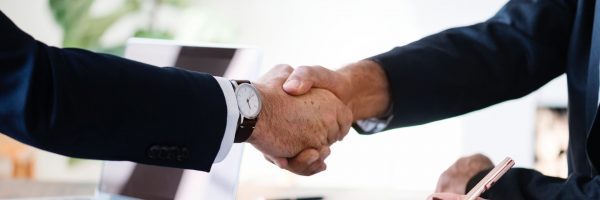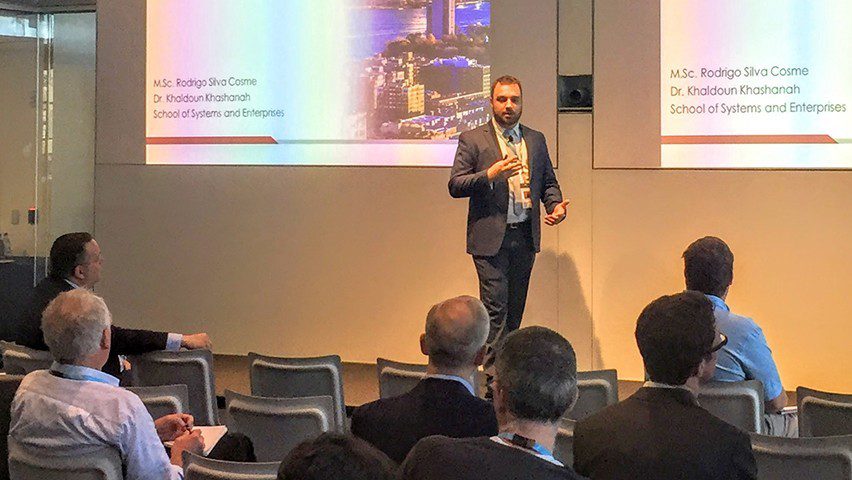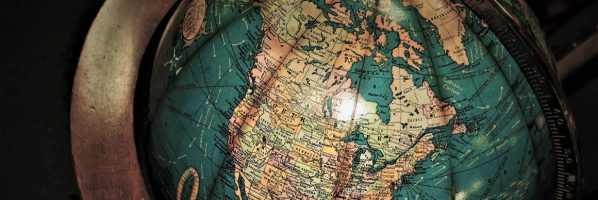Top MBA Recruiters: Siemens

As the largest industrial manufacturing company in Europe, Siemens has a reputation for developing quality products from power generation technology to building automation, medical technology, railway vehicles, fire alarms, and PLM software. The Munich-based company was founded 172 years ago in 1847 as a multinational conglomerate with offices all over the world. Which means working at Siemens post-MBA graduation is very attractive.
Continue reading…Religious Spending, Taking Risks, and More – Boston News

Let’s explore some of the most interesting stories that have emerged from Boston business schools this week.
Shoppers with Strong Religious Beliefs Spend Less and Make Fewer Impulse Purchases – Harvard Business Review
The Harvard Business School recently published an article in the Harvard Business Review that illuminates a fascinating correlation between grocery spending and religiosity—as the latter rises, the former falls.
The researchers write, “We found that for each 20 percent increase in the number of religious adherents in a county, annual grocery sales per store decreases, on average, by about $125,000. [Our] results showed that shoppers living in more religious U.S. counties spent less money on groceries and also made fewer impulse purchases than those living in less religious U.S. counties.”
The implications of the research are vast and wide reaching, particularly for retailers. They explain further:
“Because being reminded about God increases shoppers’ frugality, they may be more sensitive to price discounts and promotions (such as “buy one, get one free”) around the time of religious holidays and observances. Getting a good deal, particularly on an impulse buy, is likely to alleviate shoppers’ heightened frugality.”
The researchers also speculate that “retailers may also allay religious shoppers’ concerns about being frugal by offering deals that demonstrate respect for their values, such as promising to donate a percentage of revenue from a particular product to a local charity.”
You can check out the full article here.
When Regulation Doesn’t Throttle Risk-Taking – Questrom School of Business Blog
New Management Science research from Questrom School of Business Accounting Professor Ana Albuquerque and Fudan University’s Julie Lei Zhu finds the positive impacts of the 2002 Sarbanes-Oxley Act (SOX), which required companies to implement internal controls on financial reporting.
According to the article, “not only did filing firms not decrease their investment activities, some measures suggested that firms actually increased their investments after the reporting requirements were put into place. Filing firms also appeared to benefit in other ways. Banks typically offered filing firms larger loans with lower collateral requirements compared to non-filing firms.”
Albuquerque writes, “Credit terms improved [for filing firms], because they were disclosing more information. The benefit was higher than the cost of compliance.”
You can read more here.
These 12 startups are Re-Imagining the Latin American Workplace and Workforce – MIT Sloan Newsroom
MIT Sloan recently announced the 12 Latin American finalists of the its global Inclusive Innovation Challenge, all of which will travel to São Paulo, Brazil in just a few weeks “where they will pitch their ideas at the IIC Latin America Celebration.”
According to the article, “the winner of each category then goes on to compete in November during the Global Grand Prize Gala at MIT. The gala includes four $250,000 prizes, one for each category.”
Initiative Director Erik Brynjolfsson writes, “If we employ inclusive innovation globally, it could be the best thing that ever happened to humanity. We can have more wealth, better health, and widely held prosperity.”
Here’s a quick overview of each of the 12 Latin American finalists:
- Interacpedia “connects university student teams with organizations to generate the development of new skills/jobs and opportunities.”
- Signa is a “platform that provides deaf people with online digital economy courses.”
- Sumá is a “fair marketing platform that connects family farmers with food buyers.”
- Alò Bodega is a “mobile app for Latin American and Asian corner stores.”
- Apli is an “artificial intelligence-enabled jobs marketplace.”
- Incluyeme is an “online job portal for people in Latin America with disabilities.”
- Grupo Nueva Economía is “developing new digital channels for small businesses and entrepreneurs.”
- Outbound Initiative “connects innovators from underrepresented regions — in this case Brazil — with business opportunities using data-combing artificial intelligence.”
- RedeDots is a “social network of more than 220,000 people engaged in the fair trade and sustainable business market.”
- LEVEE “uses machine learning, geolocation, and mobile messages to connect people with job opportunities.”
- Trocafone “aims to reduce e-waste by creating a marketplace for used electronics.”
- UnDosTres “offers Mexico residents mobile payment for services like prepaid cellphone recharging, movie ticket purchases, electricity, and phone bills.”
You can read more about the startups here.
First Impressions: No Need to Panic! – Chicago News

Let’s explore some of the more interesting stories that have emerged from Chicago business schools this week.
The Personal Statement: No Need to Panic! – Inside Kellstadt
First impressions are stressful across the board, which can make the impression you attach to your business school application all the more nerve-wracking. Current DePaul Kellstadt MBA student Kristen Hall took to the official Kellstadt blog to offer some insights into crafting the perfect personal statement.
In “The Personal Statement: No Need to Panic!” she writes, “My advice to prospective students writing their personal statements would be to share what inspired you to apply to Kellstadt. Each applicant has a different story and connection to the program and sharing your own “Aha!” moment is a way to set yourself apart from other applications.”
You can read Hall’s entire piece here.
How a Genetically Modified Soybean Helped Modernize an Economy – Kellogg Insight
Northwestern University Kellogg School of Management Associate Professor of Finance Jacopo Ponticelli recently co-authored new research that illuminates how “countries develop from agrarian economies into more industrialized ones” by examining the impact of Monsanto’s genetically modified Roundup Ready soybean seed (a.k.a. the Maradona soy) on Brazilian agriculture in the early 2000s.
The research, which was co-authored by University of Zurich economist Bruno Caprettini and Paula Bustos of Spain’s Center for Monetary and Financial Studies, found that “the seed freed up farm laborers to find other jobs, allowing Brazil’s industrial sector to grow, [and] helped farmers put more money in the bank, which led to urban centers getting access to cheaper credit, allowing banks to finance more manufacturing and services firms.”
Ponticelli suggests that Brazil’s example illustrates how “bumps in agricultural productivity can ripple through an entire economy, not only bolstering the manufacturing sector, but exporting fresh capital to the urban centers where new industries tend to grow.”
You can find the full article here.
Mendoza Finance Prof Wins Research Award for Linking Electricity Usage with Stock Returns – Mendoza Ideas & News
Notre Dame University Mendoza College of Business Professor of Finance Zhi Da received the Journal of Financial and Quantitative Analysis’ 2017 William F.Sharpe Award for Scholarship in Financial Research this past May in recognition of his innovative research, which finds that the “growth rate of industrial electricity usage predicts future stock returns for up to one year.”
According to Professor Da’s paper, “industrial electricity usage tracks the output of the most cyclical sectors. So high rate of growth for industrial electricity usage today—indicating an increase in production due to a company’s expectation of increased sales — predicts low stock returns in the future, consistent with a principle called the countercyclical risk premium, [which] states that the market premium tends to run counter to the business cycle.
According to the article, “The Sharpe Award is intended to foster excellence in financial research. Recipients receive a $5,000 prize for the best article published each year in the JFQA.”
You can find more about the reward and Da’s work here.
Stevens Alum Takes Disruptive FinTech Lessons Back Home to Brazil

ZeroBeta founder Rodrigo Silva Cosme, a MS ’16 Stevens Institute of Technology’s School of Business graduate, recently returned to his alma mater to present his master’s thesis, explaining how machine learning can apply to financial markets.
Cosme, who was invited by Professor Khaldoun Khashanah, explains; “The world is getting more automated, more efficient, more intelligent, and finance is no different. You need complete professionals who know how to code and also can handle the financial side of the business and implement solutions.” Cosme, who arrived in the United States with a “lifetime fascination with financial markets,” believes people who choose to trade by themselves can’t do it optimally.

Rodrigo Silva Cosme delivers his thesis at a recent Bloomberg conference at Stevens/Photo via Stevens.
The São Paulo-based ZeroBeta is a unicorn of sorts in the Brazilian market, which “lacks the liquidity that allows for more diversified risk in investment strategies.” The startup leverages algorithmic trading and portfolio optimization techniques to “build smarter strategies for trading.
Cosme continues, saying, “Instead of working for [hedge fund managers], we trade with them—we develop the strategies for the accounts, we make the trading decisions, and they do the commercial side of the business, getting customers and raising capital.”
Cosme attributes ZeroBeta’s success largely to the first-hand exposure he received at Stevens to the myriad ways that finance and technology can intersect. “What I do at my job, every day, is what I learned at Stevens — from trading option spreads, to coding through C++ design patterns, to portfolio rebalancing. If you’re not able to find the answers with the kind of resources Stevens has, you can’t find them anywhere.”
Gain a Global Edge with These Philadelphia International Business MBAs

Every day, it becomes easier and easier to make connections across the world, building a global network of business and resources that can help to benefit the world. Due to an increasingly global economy, possessing a deep knowledge and understanding of the way global markets work can be a crucial part of building a business career. There is almost no limit to the types of opportunities an education in global business will provide: from working in the fields of international trade, global business operations or planning or industrial development, and being employed by international agencies, non-profit organizations, governmental, or both public and private corporations.
According to Michigan State program globalEDGE, “demand continues to grow for individuals who understand the global context of business: from the logistics of international trade and cross-border investments to the cultural and ethical issues that are imbued in the practice of business around the world. By studying international business, you will learn about world cultures and societies, and be challenged to approach issues from different perspectives.”
In choosing to study international business in the Philadelphia metro area, aspiring business leaders can center themselves in a growing market at the center of United States history and global trade. We’ve rounded up some of the area’s top MBA programs that offer a concentration in international business, allowing students to gain specific knowledge and skills to make an impact in the global economy.
Fox School of Business – Temple University
Consistently rated one of the top business schools in the country, the Fox School of Business at Temple University offers students a number of opportunities to gain skills and earn a degree in the field of global business. The Global MBA program, based in Philadelphia, is taught by world renowned faculty and is designed to provide an experiential education in international economics, with live consulting, internship and professional development opportunities. Additional programs like the MBA from Temple University Japan in Tokyo and the EMBA at Temple University Paris offer further opportunities for students to gain a hands-on global experience with a strong business background.
Lerner College – University of Delaware
The MBA at University of Delaware’s Lerner College of Business gives students the opportunity to concentrate in international business, providing the solid business background they will need to effectively conduct business in a global environment. In addition to U.S. citizens looking to expand their knowledge in international business and help their organizations to expand overseas, many students in the Lerner MBA program are international, returning home with a deep understanding of U.S. customs and the ability to navigate business across borders.
YOU MAY ALSO LIKE – Searching for the World’s Top MBA Recruiters: Comcast
Rutgers School of Business, Camden
Students interested in concentrating in International Business and Operations can do so at the Rutgers School of Business by pursuing a number of electives in the field. Students can take a number of electives in the fields of International Business and Operations Management to complete the concentration, including courses like: International Management, Global Operations Information Technology, Global Marketing Strategy, and International Study Abroad in countries such as South Africa, France, and Brazil.
Smeal College of Business – Penn State
While the Smeal College of Business at Penn State does not directly offer a concentration or major in international business, it is an available as an option. At Smeal, options constitute a briefer but still targeted study within a particular area, allowing students to gain a deeper education in Global Business while still receiving the more general education of an MBA.
The Wharton School – University of Pennsylvania
The Wharton School at UPenn, well-known as one of the top business schools in the world, provides students the opportunity to pursue a joint MBA/MA in International Studies. The MBA/MA Lauder Joint-Degree provides students a range of resources and educational experiences in global business, such as the Global Knowledge Lab, which involves students working together as a team to produce a thorough research paper/master’s thesis. The program also includes two short global immersions and an optional ten-day trek called Culture Quest, organized completely by students in the program. The six areas of concentration students may choose to specialize in include: Africa, East and Southeast Asia, Europe, Latin America, South Asia, the Middle East, and North Africa.
The Houston International MBA Programs You Need To Know

Pursuing higher education in Houston does not have to mean that students are tethered to one city—or even one country—the entire time they are in school.
Below, we’ve laid out the four best Houston international MBA programs.
C.T. Bauer College of Business – University of Houston
The University of Houston’s C.T. Bauer College of Business offers several options for aspiring MBAs who want to learn to navigate the global marketplace. All of Bauer’s Executive MBA students have the opportunity to do an International Business Residency (IBR) between their first and second years. Each class travels together to a country determined in advance by program coordinators. The IBR is seven days long, and students will use these days to meet with foreign political figures, experience the country’s culture, and tour global companies.
Bauer also offers a Global Leadership Executive MBA for students who want their entire education to focus on a broader perspective of business. Students can also apply for the Global Energy Executive MBA to obtain a greater understanding of the expansive energy industry. Bauer grad students can choose from a variety of study abroad programs in places like India, Berlin, Chile, China, and Paris.
Cameron School of Business – University of St. Thomas
MBA students at the Cameron School of Business can choose to pursue a concentration in international business, that will include a plethora of courses that provide insight into the global economy. All MBA students can seek approval from the dean or associate dean to receive elective credit for the study abroad course, MBA 5394: Special Topics. This option is provided during the Summer II session of the program.
READ THIS: The Most Common Business School Application Mistakes
Rice University – Jones Graduate School of Business
At Rice University’s Jones Graduate School of Business, all full-time MBA students take a Global Immersion Program. Students participate in this program in May after their first year of school, lasting from seven to ten days. In May, 2018, full-time MBA students will travel to Brazil to do consulting projects for different companies. This program is highly beneficial, as students’ roles within the abroad projects are tailored to their specific concentrations. Rice also offers Global Intersessions, in which professors spearhead trips to different countries. The 2017 and 2018 Intersessions will take place in China and Colombia. In addition to the Global Immersion Program and Global Intersessions, Rice students can international seminars abroad, generally hosted by other business schools.
University of Houston – Downtown
The University of Houston-Downtown offers an MBA in International Business that is specifically geared toward students seeking careers in risk management, finance, and supply chain management within a global corporation. To earn this degree, students must take 10 separate core courses, not including the courses required for their concentration. This program can be completed in 12 months, and is designed to help students become comfortable with international finance markets, the laws of international business, strategic sourcing and purchasing, as well as a host of other topics.
